Dear compatriots!
Creation of full-fledged and efficient system of management is the main condition of accomplishing enormous tasks that lay ahead.
At recent meetings we have thoroughly discussed all of the issues related to lawmaking and efficient organization of the parliamentary control mechanisms.
At the same time, I would like to draw your attention to the following urgent matters.
Also Read: Egypt, Qatar Deliver Trump’s Gaza Ceasefire Proposal to Hamas
First, the role and responsibility of executive and representative bodies in public administration on the ground must be further increased.
A new system must be created to control the efficient use of broad powers granted to governors and mayors for over the last 3 years, as well as the efficiency of the activities of regional structures of ministries and agencies.
In this regard a well-grounded question arises: why the entire Government starting from the Prime Minister and regional governors must report to the parliament, but regional and district-level official should not report to the local councils?
Therefore, a system is to be put in place under which regional governors and district mayors will present their programs and provide status reports on their implementation to regional councils.
Also Read: Israeli Airstrikes Kill 54 Palestinians Across Gaza
At the same time, governors and mayors will have to inform the mass media and public on implementation of indices and target parameters set forth in decrees, decisions, concepts and strategies across their regions.
In order to increase the work efficiency, I propose to introduce the institute of Council inquiry in the activity of local representative bodies.
Here is another important matter. The current legislation provides for some 300 tasks and functions of governors’ and mayors’ offices.
Of this number, 175, by definition, are not among core tasks of governors’ and mayors’ offices and duplicate the functions of other agencies.
Also Read: School Bus Explosion in Pakistan Kills Five, Military Accuses India
Naturally, it has a negative impact on the work quality and performance discipline.
Therefore, the Senate of the Oliy Majlis is to engage the Ministry of Justice in the first half of this year and revise the powers of governors and mayors and develop proposals on ensuring transfer of extrinsic and duplicating functions to other relevant agencies.
Second, it would be advisable for NGOs and other civil society institutions to draw the attention of public authorities to the problems which cause concern among the population and today and provide their well-justified proposals and suggestions.
To this end, we need to establish a broad social partnership with NGOs at national and regional level and increase the number of grants and social contracts.
Also Read: Half a Million People in Gaza on the Risk of Starvation: IPC
Ministries and agencies should not stand aloof as mere spectators and widen the scopes of such social partnership.
Therefore, the activity of the Social Fund for the Support of NGOs and other Civil Society Institutions under the Oliy Majlis needs to be improved.
The binding nature of public consultations and public hearings in adopting extremely important decisions, which draw the special interest in public and are related to the social and economic life of the country, needs to be clearly specified.
If public approves, it will be approved, if not, then it will be rejected.
Also Read: Israeli Captive Says “Only a Deal Will Bring Us Home”
In order to further strengthen public monitoring, establish a closer cooperation between the state and society, I propose to establish the Civic Chamber of the Republic of Uzbekistan.
In order to implement the UN Sustainable Development Goals, a practical cooperation of the Parliament, the Government and civil society institutions should be established and regular parliamentary and public hearings on this matter should be organized.
Distinguished deputies and senators!
The efficiency of our reforms largely depends on four important factors, such as ensuring the rule of law; steadfastly combatting corruption; institutional capacity building and building strong democratic institutions.
Also Read: Al-Quds Brigades Seize Israeli Surveillance Drone Over Khan Younis
You are well aware that we have dwelled upon main tasks in the rule of law and judicial spheres at the solemn ceremony dedicated to the Constitution Day.
In this regard, I would like to draw your attention to the following additional tasks.
First, ensuring full independence of courts must be one of our key tasks.
In addition to the view, which I expressed in my previous addresses, I would like to stress once again that violations during pre-trial investigation can be eliminated by ensuring the real independence of courts alone.
Also Read: Hamas Expresses Readiness for Comprehensive Deal with Israel for Hostage Release
Legislative measures and activities put in place in this regard are giving their specific results.
These positive changes have been especially noted by the UN Special Rapporteur on the Independence of Judges and Lawyers Mr. Diego García-Sayan.
One thousand nine hundred and eighty nine persons were acquitted for over the last three years, while in 2019 alone this figure reached 859. In addition, 3 thousand 81 persons were released from the courtroom and indictments against 2 thousand 623 persons were amended by excluding unjustified criminal charges.
The fact that our judges are acquitting suspects in order to ensure justice and the rule of law is, undoubtedly, our biggest achievement in the judicial and legal sphere.
Also Read: Israel Reaffirms Total Blockade on Humanitarian Aid to Gaza Amid Global Outcry
As President I will continue to fully support such courage and resolve of our judges.
Now, the time has come not to limit ourselves with merely acknowledging the fact that people’s rights have been restored by court, but to bluntly ask why the human rights and freedoms are violated at pre-trial investigation, bear liability for oppressions.
The practice of recalling and examining judicial decisions by prosecutor’s office, which is inherited from the old system and yet still continuing, should be limited.
From now on, a prosecutor will be able to examine a judicial decision only when a complaint is filed under the case only.
Also Read: Israeli Captive in Gaza Sends Emotional Plea to Netanyahu for His Release
Powers of court chairpersons in terms of assessing judges’ performance and opening disciplinary cases against them need to be revised.
Public officials should clearly realize that the issues of ensuring independence of courts will remain under the strict personal control of President.
Any person setting foot in the court premises, should be fully confident that justice prevails in Uzbekistan.
Otherwise, as great German philosopher Immanuel Kant said «If justice perishes, then there doesn’t remain anything that can give a value to life».
Also Read: Extremist Settlers Storm Al-Aqsa Mosque Under Heavy Israeli Police Protection
We should never forget this truth. Judges in Uzbekistan must be the staunch defenders of laws and strong buttress of justice.
The Supreme Court, the Supreme Judicial Council and the Ministry of Justice shall in three month’s time submit a draft law providing for the implementation of the foregoing proposals.
Second, the main laws and codes related to the judicial sphere were adopted almost 20-25 years ago and don’t meet the modern time requirements.
Therefore, it is expedient for the Parliament to adopt anew the Civil, Criminal, Criminal-Procedure and Administrative Liability codes in the forthcoming years.
In this regard, a special attention should be attached primarily to the introduction of advanced human rights standards to the investigative and judicial practices.
The purpose from renewing the legislation should not be the adoption of a law alone, on the contrary, one must think how the new laws will provide practical benefits to the people and how they will improve their lives.
Third, the reforms in the sphere of early prevention of offences must be elevated to a new level.
We are implementing bold reforms to enhance the activities of internal affairs bodies.
However, we should openly admit that so far this agency has not won people’s trust or became their real defender.
The system has not defined clear criteria related to maintaining public order, fighting crime and providing public services.
In this regard, I believe it is worth repeating once again that reforms must continue to turn the internal bodies into a structure which will be at people’s service.
This is a five-year task for the new Parliament, particularly for the Senate, and all organizational and legal framework should be created and practical measures be taken to this end.
A system of advanced training and targeted training of managerial staff of all levels of internal bodies should be created.
Fourth, unfortunately, the scourge of corruption in our society is impeding our progress with its various manifestations.
Unless we suppress and prevent this evil, it will be impossible to create a real climate of business and investments, no sphere of society will develop.
Both numerous appeals received by the President and stories carried in the media and social networks vividly demonstrate that entrepreneurs still face corruption in the spheres of land allocation, cadastre, construction, license, customs, banking and public procurement.
Unless all layers of the population are involved and best experts are not engaged in fighting corruption, all members of our society are not given an «integrity vaccine», if you will, we will never achieve the great goals we have set.
We should move to early prevention of corruption rather than fighting its consequences.
In order to systemically implement these tasks, I want to propose to establish a separate agency which will be responsible for fighting corruption and report to the President and the Parliament. What do you think about this?
In three month’s time, the Administration of the President jointly with the relevant committees of the chambers of the Oliy Majlis shall draft the relevant Decree.
Fifth, yet another important step is required by life itself in terms of ensuring human rights by enhancing the legislation in the field of citizenship.
In particular, I believe it is a high time to take the organizational and legal measures to lawfully resolve the problem of thousands of our compatriots who have been residing in our country for a long time but do not have a legal status of a citizen of Uzbekistan.
Specifically, the persons who came to Uzbekistan before 1995 and have been residing here since then must be granted citizenship of the Republic of Uzbekistan automatically.
Thereby, almost 50 thousand of our compatriots will be able to resolve their long-standing unaddressed problem of citizenship.
The Cabinet of Ministers shall consider this matter jointly with the Legislative Chamber of the Oliy Majlis and submit the relevant draft laws until May 1 this year.(AK/R1/P2)
Mi’raj News Agency (MINA)





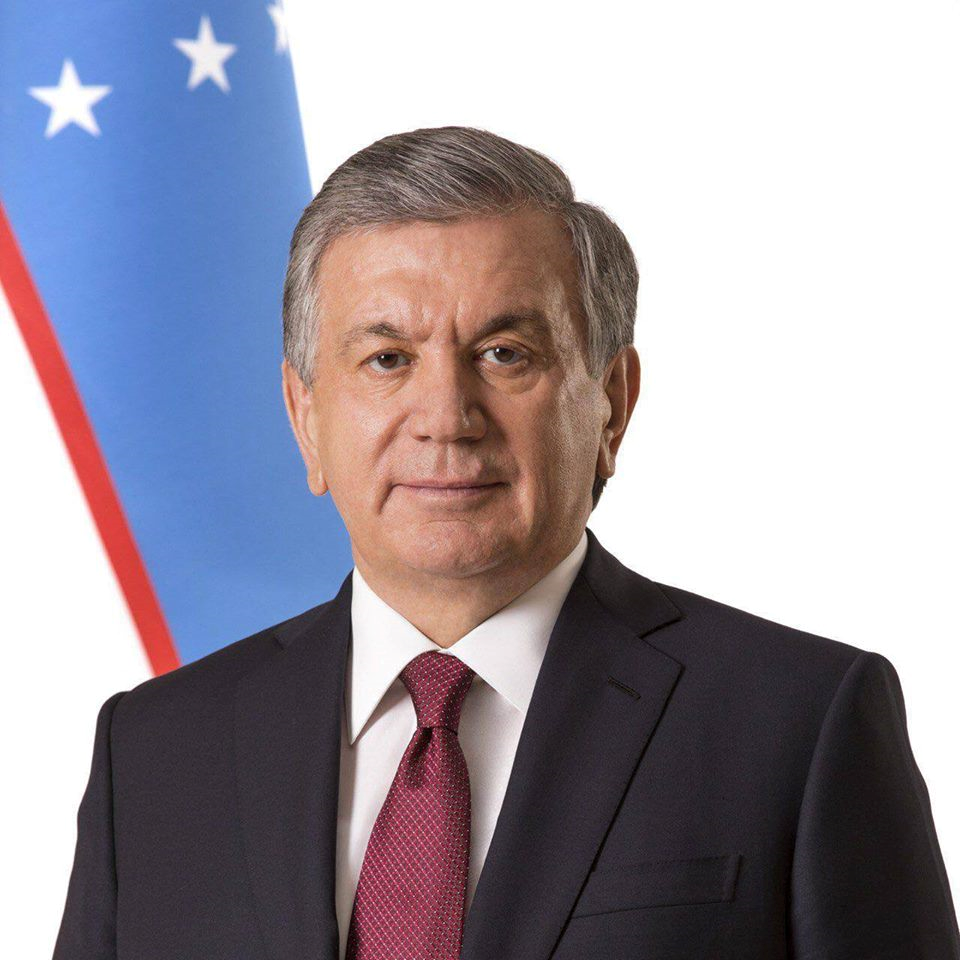




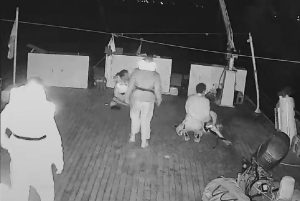
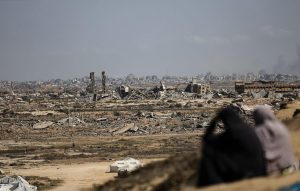



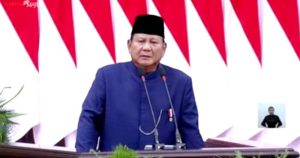


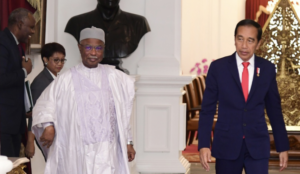
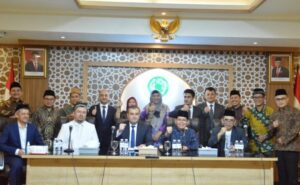




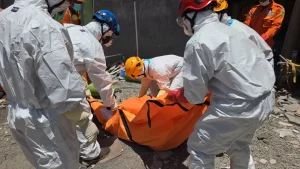


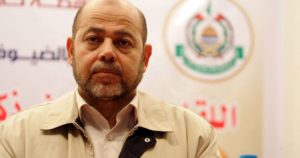
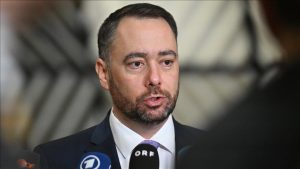
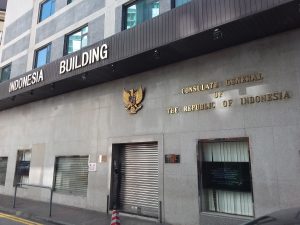




 Mina Indonesia
Mina Indonesia Mina Arabic
Mina Arabic